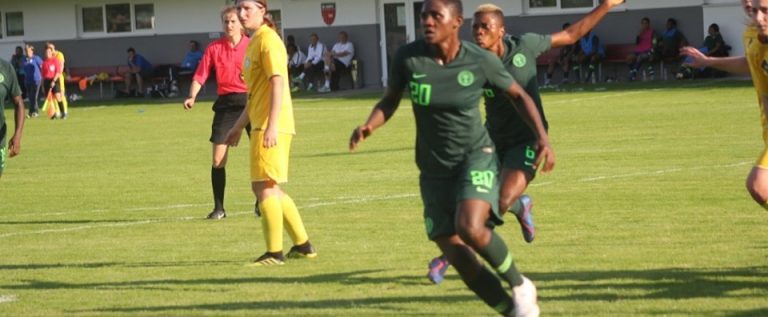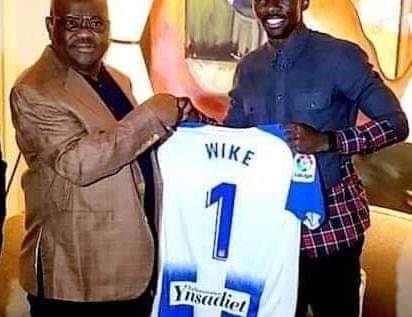Emmanuel Ifeajuna: First Nigerian Commonwealth Games Gold Winner Who Was Executed By The Firearm
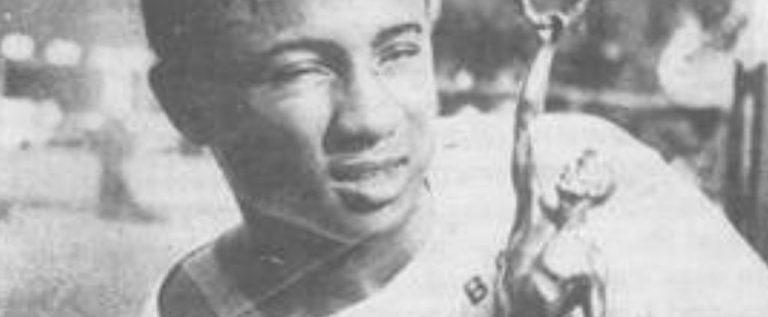
![]()
By Our Correspondent
Nigerian sportsmen and women have always been history makers right from colonial time. Emmanuel Arinze Ifeajuna is not just a history maker in Nigerian sports but in the entire continent of Africa.
He was the first African to win a gold medal at an international sports event when he won at the 1954 British Empire and Commonwealth Games. His winning mark and personal best of 6 ft 8 in (2.03 m) was a games record and a British Empire record at the time
However, his involvement in politics and later military activities have made many people forget that Emmanuel Ifeajuna was the first ever Black African to win a gold medal.
Born in Nigeria in 1935, Ifeajuna was a high jumper, a skill he learnt while still in school. He participated in national competitions including the 1954 Nigerian Athletics Championships that saw him establish his name as a prolific high jumper. After jumping 6 foot 5.5 inches (1.97 m) at this competition, he qualified to represent his country at the 1954 British Empire and Commonwealth Games.
While in Vancouver where the competition took place, Ifeajuna broke both the competition and the British Empire records in high jump. He did all this without his right shoe. He was considered a hero and received such a grand welcome, complete with a parade when he returned to Nigeria after the competition. He became such a celebrity that his photo was used on the cover of exercise books in Nigeria.
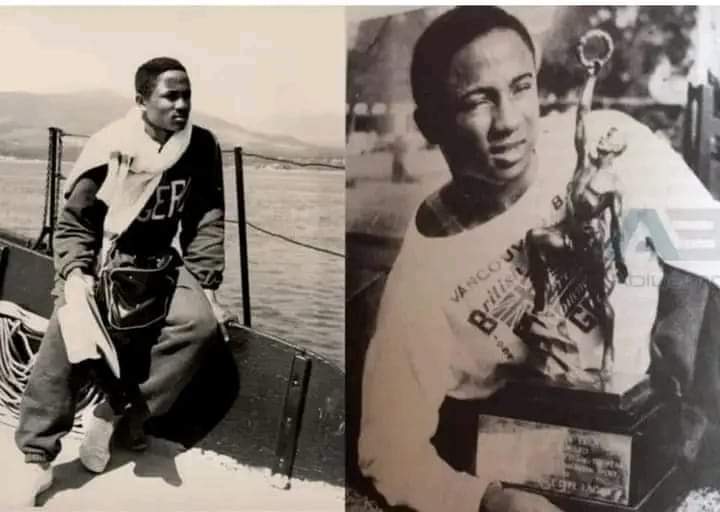
He, however, stopped training in the game and opted to go back to school. He joined the University College of Ibadan, where he became involved in student politics and became friends with some of Nigeria’s biggest poets, J.P Clark and Christopher Okigbo. Ifeajuna would organise a number of protests, but would not participate in many of them according to the accounts of his friends and schoolmates.
After completing his university studies, he went to Abeokuta to teach but left the profession in 1960 to join the military. Because of his education, Ifeajuna rose the ranks to become a Major in 1966.
Dissatisfied with how the government was running affairs after independence, Ifeajuna became a plotter of Nigeria’s bloodiest coup together with Major Chukwuma Kaduna Nzeogwu, Timothy Onwuatuegwu, Chris Anuforo, Don Okafor, Adewale Ademoyega and Humphrey Chukwuka.
It is recorded that Ifeajuna not only arrested then-Prime Minister Abubakar Tafawa Balewa (who later died in detention) but also killed other army officials including Brigadier Zakariya Maimalari, who had come to him for help and Lieutenant Colonel Abogo Largema.
The coup was prevented by Major-General Johnson Aguiyi-Ironsi, who later took over power to become the first military head of state. Following the failure of the coup, Ifeajuna had no choice but to run away. With the help of his friends, he travelled to Benin and headed to Ghana where he was welcomed by Kwame Nkrumah.
His stay in Ghana was shortlived as Nkrumah’s government would be overthrown shortly afterwards. He returned to Nigeria amid assurances from Emeka Ojukwu, who would later become the leader of the Republic of Biafra, that his life was not at risk.
Ifeajuna got back into the military and became part of the Biafran Army. However, Ojukwu would accuse Ifeajuna and other top military leaders of treason in 1967. He claimed that Ifeajuna and his mates were busy negotiating with Nigeria via the British and wanted to overthrow him and take power for themselves.
They denied charges of alleged treason and claimed they were trying to save lives and the country at large, they said, by negotiating an early ceasefire with the FG and reuniting Nigeria. They failed, they died.
The day of the execution was September 25, 1967, at exactly 1.30pm. There was a very short time between trial and execution, not least because federal troops were closing in on Enugu, the Biafran capital, giving rise to fears that the “guilty four” might be rescued and set free.
In a hastily-conducted trial, Ifeajuna was sentenced to death by firing squad and was executed on September 25, 1967.
According to reports, his last words were:
“You may kill me now, but I am afraid it is too late. I am sorry for you all because it won’t be long before they get all of you. The Nigerians are already in your midst.”
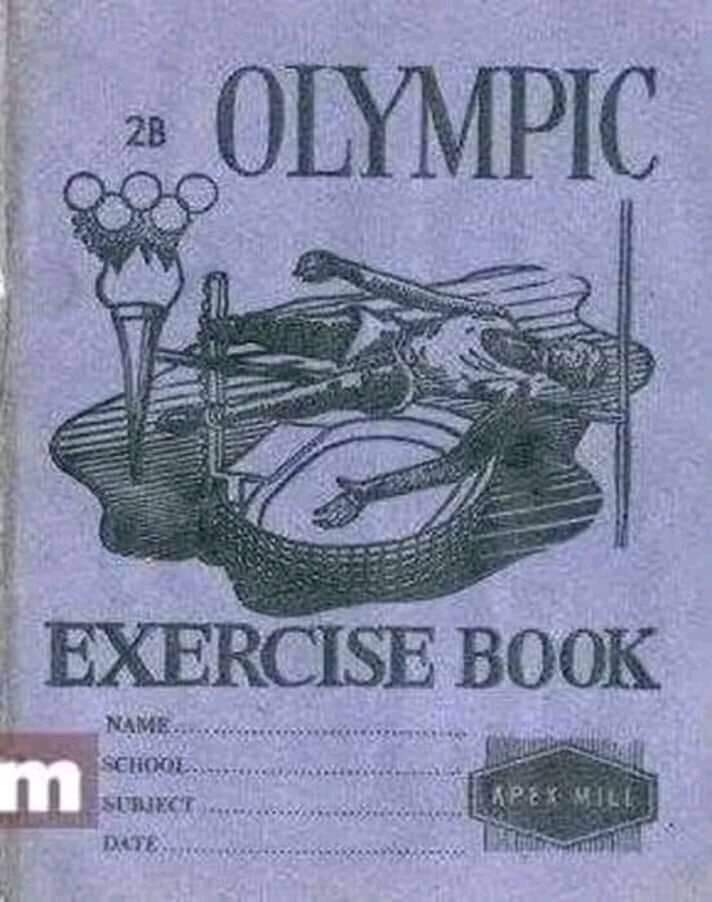
As the execution approached, the four men; Ifeajuna, Victor Banjo, Phillip Alale and Sam Agbam were tied to a tether. Ifeajuna, with his head on his chest as though he was already dead, kept murmuring that his death would not stop what he had feared most, that federal troops would enter Enugu, and the only way to stop this was for those about to kill him to ask for a ceasefire. A group of soldiers drew up with their rifles at the ready. On the order of their officer, they tailored their guns at the bared chests of Ifeajuna and the three other men.
At the thunderous shout of the officer: “Shoot them! Shoot them!” “Open Fire!”, they obeyed the last order, in a twinkle of an eye the deafening volley was followed by lolling heads. Emmanuel Arinze Ifeajuna slumped and died. Nigeria’s great sporting hero died a villain’s death.
Compared to most of the 1966 coup planners and the leaders of the Biafran revolution, Ifeajuna has not been featured prominently in Nigerian history.
He left behind an unpublished manuscript about the January 1966 coup that caught the attention of many people who believed that it would reveal some facts about the event.
Of all the many hundreds of gold medallists at the Empire and Commonwealth Games since 1930 none left such a mark on history, led such a remarkable life or suffered such a shocking death as Ifeajuna.
He was the man on a 2A Olympic Exercise Book.


